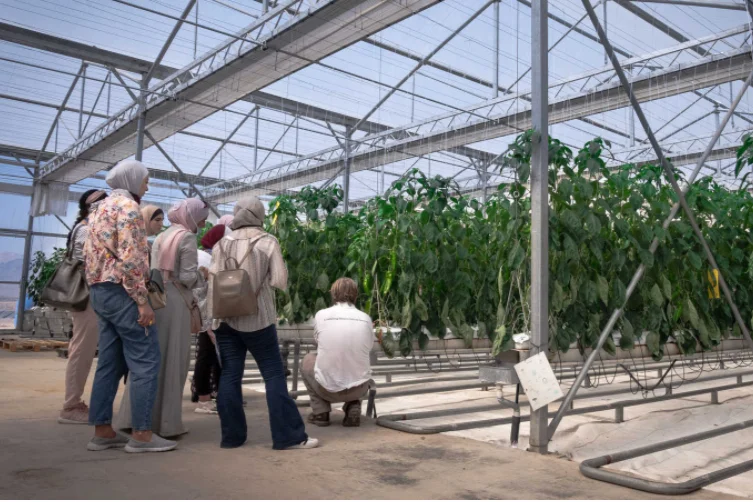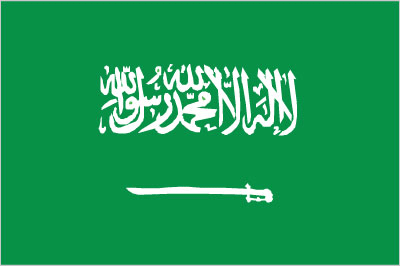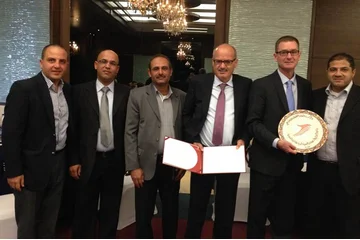In Jordan, female engineers lead the way in sustainable agriculture

Under the hot Aqaba sun, an all-female team of recent Jordanian university graduates took turns planting lettuce and bok choy seeds in the desert soil. Just minutes earlier, they had prepared a special compost blend — a mix of peat moss and ground coconut shell — which allowed them to turn the otherwise arid soil into fertile ground.
The 15 female engineers were participating in their first site visit of the Sahara Forest Project (SFP) research center in Aqaba, as part of a 12-week training program to boost innovative practices in sustainable agriculture in Jordan. The training program is a joint project between Hussein Technical University and SFP, a Norwegian NGO focused on providing fresh water and food in desert regions.
For many of the participants, this was their first experience seeing what they had learned in university outside of a textbook.
“For me, this was the first time seeing agricultural fields like this,” Dania Shahrori, a 24-year old graduate in water and environmental engineering, told Al-Monitor. “It’s unique to see these new techniques in Jordan,” she said.
The SFP employees guided the participants through the research facility and through the lifecycle of a crop grown using their experimental techniques. The participants first learned how seawater was taken from the Red Sea a few kilometers away and about the desalinization process, before learning how to determine the proper salinity level of the water. They then observed the composting stations outside and the crops grown using the custom-made compost.
The participants asked the two SFP staff members many questions about the research station’s technology, crop yields and the chemistry behind the special compost blends they were making. After stumping the SFP country director with a question about a specific part in the desalinization machine’s reverse osmosis filter, one of the women explained that she was working in a waste management startup and thought the part could be useful for her work.
In Jordan, women make up just 14% of the workforce as of 2019, one of the lowest female labor participation rates in the region. In the agricultural sector specifically, women typically work low-skilled, low-earning jobs, rather than more technical and managerial roles.
To this end, the program not only focused on the technical aspects of sustainable agriculture in Jordan, but also on the soft skills necessary to bring a project to fruition, Ruba al-Zu’bi, a sustainability expert and mentor for the program, told Al-Monitor.
 Algeria
Algeria Bahrain
Bahrain Comoros
Comoros Djibouti
Djibouti Egypt
Egypt Iraq
Iraq Jordan
Jordan Kuwait
Kuwait Lebanon
Lebanon Libya
Libya Mauritania
Mauritania Morocco
Morocco Oman
Oman Palestine
Palestine Qatar
Qatar Saudi Arabia
Saudi Arabia Somalia
Somalia Sudan
Sudan Syria
Syria Tunisia
Tunisia UAE
UAE Yemen
Yemen

